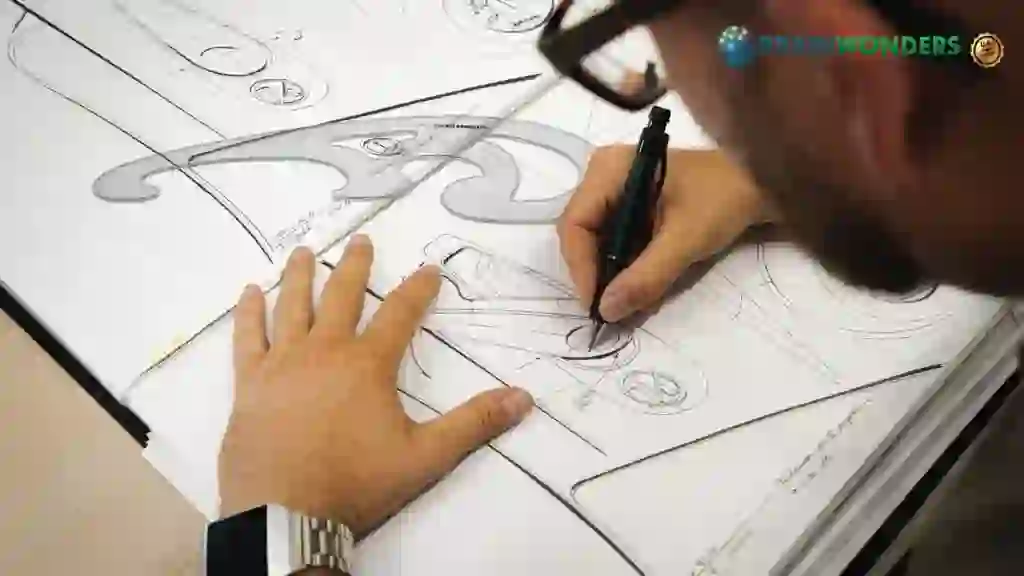How to become a Sculptors
Overview, Courses, Exam, Colleges, Pathways, Salary

Overview
Who is Sculptors ?
Sculptors create three-dimensional artworks using various materials such as stone, clay, metal, wood, or mixed media. They employ various techniques to bring their artistic visions to life, including carving, modelling, casting, and welding. Sculptors can work on various scales, from intricate small-scale pieces to monumental public sculptures.
Their creative process involves conceptualizing ideas, sketching or creating maquettes (small-scale models), and transforming these designs into tangible sculptures. Sculptors deeply understand form, composition, and aesthetics to craft visually appealing and emotionally evocative artworks.
Sculptors' work is not limited to traditional figurative or representational forms; they often explore abstract, conceptual, and contemporary styles. Many sculptors find inspiration in diverse themes, ranging from mythology and nature to social and political issues.
Typical day at work
What does Sculptors do?
- To construct and designs three-dimensional artworks.
- To model the plastic substance, such as wax or clay using small hand tools and fingers to form objects
- To construct artistic forms from stone or metal by using masonry tools, metalworking, welding and equipment.
- To cut, arranges, bends, laminates and fastens mixed or individual raw to form art works.
- To work under contract or commission.
- To teach sculpturing.
- To specialize in medium or one technique and be identified accordingly.
Abilities and Aptitude needed
What are the skills, abilities & aptitude needed to become Sculptors?
To become a successful sculptor, individuals need skills, abilities, and aptitudes encompass artistic talent and technical expertise. Here are some key attributes that are essential for aspiring sculptors:
- Artistic Creativity: Sculptors must possess strong artistic creativity and imagination to conceptualize unique and visually compelling sculptures. They must think outside the box and explore various artistic styles and concepts.
- Manual Dexterity: Sculpting is a hands-on craft that requires excellent manual dexterity. Sculptors work with various tools and materials, and precise hand movements are necessary to effectively shape and manipulate the medium.
- Spatial Awareness: Understanding three-dimensional space is crucial for sculptors. They should be able to visualize and work with three-dimensional forms to create harmonious and well-proportioned sculptures.
- Observation Skills: A keen eye for detail and the ability to observe and analyze the physical characteristics of objects and subjects are vital for capturing realism and accuracy in sculpted forms.
- Patience and Perseverance: Sculpting is time-consuming, often involving repetitive and intricate work. Patience and perseverance are necessary to see a project through from conception to completion.
- Problem-Solving Skills: Sculptors encounter challenges while working with different materials and techniques. Problem-solving skills are crucial for overcoming obstacles and finding innovative solutions.
- Knowledge of Materials and Tools: Understanding the properties of various sculpting materials (e.g., stone, clay, metal) and knowing how to use different tools and techniques for each medium is essential for achieving the desired results.
- Understanding of Anatomy: Especially for figurative sculpture, knowledge of human and animal anatomy is critical to represent the structure and proportions of the subject accurately.
- Adaptability and Flexibility: Sculptors may need to adapt their techniques and approaches depending on the project's requirements, client preferences, or available resources.
- Passion and Dedication: Sculptors should have a genuine passion for their craft and a dedication to continuously improve their skills and push the boundaries of their artistic capabilities.
- Business Acumen (for Freelancers): If planning to work independently as a freelance sculptor, business acumen and marketing skills are essential for self-promotion, managing client relationships, and handling the financial aspects of the profession.
Salary
Salary for Sculptors?
Salary Information for Search Marketing Strategists in India:
- Minimum Monthly Salary: For entry-level Search Marketing Strategists or those with limited experience, the monthly salary might be around INR 25,000 to INR 35,000.
- Maximum Monthly Salary: Highly experienced and senior-level Search Marketing Strategists, especially those working for reputed digital marketing agencies or with a successful track record, may earn a maximum monthly salary ranging from INR 70,000 to INR 1.5 lakhs or more.
- Annual Salary: The annual salary for entry-level Search Marketing Strategists could be approximately INR 3 lakhs to INR 4.2 lakhs per year. Experienced and successful Search Marketing Strategists may earn a maximum annual salary ranging from INR 8 lakhs to INR 18 lakhs or more.
- Highest Paying Jobs and Scope: The highest paying jobs for Search Marketing Strategists in India are typically with well-established digital marketing agencies, e-commerce companies, and large corporations with a significant online presence. The career scope for Search Marketing Strategists in India is promising as businesses continue to invest in online marketing to reach their target audience and improve their digital visibility. With the growth of the digital marketing industry, there is a continuous demand for skilled and experienced Search Marketing Strategists who can devise effective strategies to enhance online presence, generate leads, and increase conversions.
Pathways
How to become an Sculptors?
Entrance Exam
Entrance Exam for Sculptors ?
Courses
Which course I can pursue?
Best Colleges
Which are the best colleges to attend to become an Sculptors?
Industries
Which Industries are open for Sculptors?
Sculptors can work in various industries and settings, depending on their skills, interests, and the types of sculptures they create. Here are some industries that often employ or collaborate with sculptors:
- Fine Arts: Many sculptors work as fine artists, creating sculptures for exhibitions, galleries, and art fairs. They may sell their artwork directly to collectors or through art dealers.
- Public Art: Public art projects commissioned by cities, municipalities, or private organisations often require the expertise of sculptors to create large-scale sculptures for parks, plazas, and other public spaces.
- Film and Entertainment: The film and entertainment industry may hire sculptors to create props, set pieces, and special effects sculptures for movies, TV shows, and theatre productions.
- Animation and Gaming: In animation and gaming, sculptors may be involved in character design, creating 3D models of characters, creatures, and objects in digital media.
- Architectural Sculpture: Sculptors can collaborate with architects and construction teams to integrate sculptures into building facades, interiors, and public structures.
- Product Design and Prototyping: Some sculptors work in product design, creating physical prototypes and models for various industries, including consumer products, industrial design, and automotive design.
- Museum and Exhibition Design: Museums and exhibition designers often hire sculptors to create displays, replicas, or interactive sculptures for their exhibits.
- Education and Academia: Some sculptors choose to work as art educators, teaching sculpture techniques and art history at schools, colleges, or workshops.
- Restoration and Conservation: Sculptors with expertise in restoration and conservation may work with museums, historical sites, and conservation organisations to preserve and repair sculptures and artworks.
- Foundries and Sculpture Fabrication: Sculptors specialising in bronze casting or other sculptural fabrication techniques may collaborate with foundries to bring their sculptures.
- Event Design and Decor: Sculptors may be involved in event design, creating decorative sculptures and installations for weddings, parties, and corporate events.
internship
Are there internships available for Sculptors?
Internships in sculptors are available for individuals interested in pursuing a career as a sculptoring. Here are some avenues where internships in this field can be found:
- Art Studios and Galleries: Many established artists and art galleries offer internships to aspiring sculptors. These opportunities can provide hands-on experience, mentorship, and exposure to the art industry.
- Educational Institutions: Art schools, universities, and community colleges with art departments often offer internship programs for their students. Check with these institutions' career services or art departments to see if they have any opportunities available.
- Public Art Programs: Some cities or organizations have public art programs that commission sculptures for various projects. Interning with these programs can give you valuable experience creating large-scale public art installations.
- Nonprofit Art Organizations: Nonprofit organizations that promote the arts may offer internships for sculptors interested in contributing to community-based art projects.
- Cultural Institutions: Museums, cultural centres, and foundations may offer internships in sculpting conservation, curation, or education programs.
- Online Platforms and Websites: Explore websites and platforms that connect artists with opportunities, such as internships.com, art-related forums, or local art community websites.
- Networking and Cold Approaches: Don't hesitate to contact individual sculptors or art professionals in your area and inquire about internship possibilities. Networking can often lead to unique opportunities.
Career outlook
What does the future look like for Sculptors?
The career outlook for sculptors is likely to remain dynamic and diverse in the future. While the demand for traditional sculptural works may continue, there is an increasing trend towards exploring contemporary and digital art forms. Advancements in technology and the rise of digital sculpting tools provide new avenues for expression, allowing sculptors to merge traditional techniques with modern approaches.
Sculptors who can adapt to changing trends, embrace innovative materials, and incorporate technology into their creative process may find expanded opportunities in animation, gaming, virtual reality, and augmented reality industries. Public art initiatives and urban development projects are expected to continue offering commissions for large-scale sculptures, providing opportunities for sculptors to leave their mark on public spaces.
As globalization and online platforms continue to connect artists and buyers, sculptors can access a broader audience and potential clientele worldwide. However, competition in the art world remains fierce, emphasizing the importance of artists honing their unique style, networking, and actively promoting their work through social media and digital portfolios.

.webp)
.webp)

